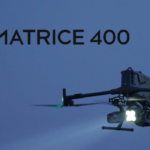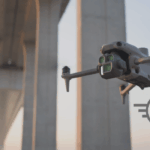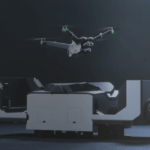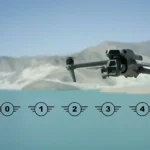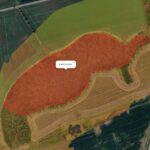Drone Pilots: Adapting to the Demands of a Growing Industry
Introduction:
In the not-so-distant past, drone pilots captured the imagination of large organizations and businesses with their high-definition aerial images and 4k videos, marking the advent of a new era in visual inspection. However, as the industry has matured, so too have the expectations of those who once marveled at the technology. Today, big business not only understands the capabilities of drones but demands more than just stunning visuals. This evolution has created a pressing need for drone pilots to professionalize, specialize, and embrace a wider array of skills to stay relevant in an increasingly competitive landscape.

The Shift in Expectations:
Gone are the days when merely providing breathtaking aerial views could secure a drone pilot a coveted contract. Large organizations and businesses, armed with newfound knowledge about drone capabilities, now seek comprehensive solutions that go beyond the superficial allure of high-quality images and videos. The catalyst for this shift can be attributed, in part, to individual drone operators and small to medium-sized enterprises (SMEs) tirelessly advocating the advantages of drones to potential clients.
The Price of Progress:
As big business embraces the potential of drones, a natural consequence emerges – a higher demand for specialized services. While this signifies growth for the industry, it poses a challenge for individual drone pilots who have not kept pace with the evolving needs of their clients. The danger lies in becoming obsolete, as companies increasingly favor in-house training or turn to specialized professionals who can deliver more than just captivating visuals.
The Call for Specialization:
Drone pilots must recognize the need to evolve beyond the confines of conventional imaging. Specialization is key to surviving and thriving in this competitive landscape. Skills such as mapping, 3D modeling, and understanding deliverables like GIS, BIM, and CAD are becoming prerequisites for the modern drone pilot. The industry standard is shifting towards aerial surveys with centimeter accuracy, and those who fail to adapt risk being left behind.
Upskilling and Filling Knowledge Gaps:

The modern drone pilot is not content with delivering the same old service with standard drone models. To remain relevant, it is essential to invest in equipment and software that enable the delivery of a high standard of service. Upskilling is no longer an option but a necessity. The new breed of drone pilots is proactive, eager to learn, and capable of filling knowledge gaps to meet the increasing demands of clients.
Moving Beyond the Hardware:
Owning the latest drone equipped with advanced features is not enough to secure success. Specialization requires a deeper understanding of the data collected and the ability to translate it into actionable insights. A drone pilot with a thermal camera, for instance, must go beyond showcasing hot and cold spots; they must be able to provide a detailed report, explaining the significance of temperature variations and their implications.
Conclusion:
The trajectory of the drone industry is clear – specialization is the key to survival. Drone pilots must not rest on their laurels, relying solely on the visual appeal of their images and videos. Instead, they should embrace the changing landscape, invest in education, and fill knowledge gaps. The future belongs to those who can offer comprehensive solutions, turning data into valuable insights for their clients. The era of the professionalized, specialized drone pilot is here, and those who fail to adapt may find themselves overtaken by a new breed of professionals eager to lead the way into the future.

